Achieving Gender Equality Through Data, Government, and Communities
By Cady Susswein
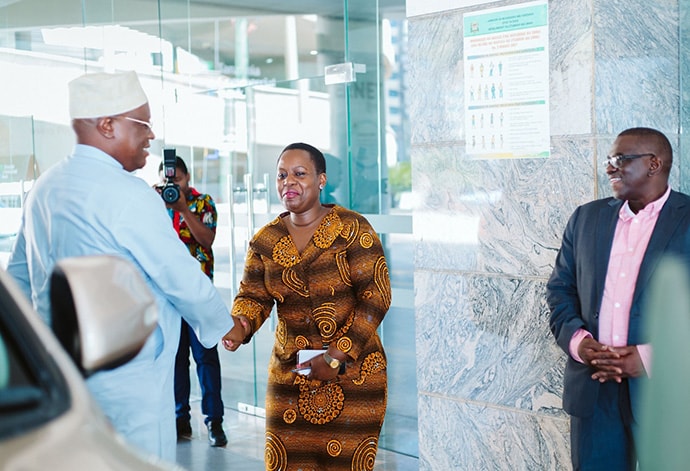
Tanzanian woman in government. Photo: Jumacada/Pixabay
The world is not on track to achieve gender equality by 2030. Full stop. According to the World Economic Forum, it will take 131 years at our current rate to reach full parity. That may feel like a daunting figure – an end we will not see in our lifetimes – but this should be a cause for further determination, not despair. GlobalWA’s members are doing incredible work to accelerate the pace of change, which can be done.
Sustainable Development Goal (SDG) 5, Gender Equality, acts as a keystone for the rest of the SDGs, i.e. it is incredibly complex and intrinsically linked to the success of every other SDG. Without gender equality, we cannot fully eradicate poverty. Without gender equality, we cannot completely achieve food security. Without gender equality, we cannot truly enhance global security. And the list continues. This makes the work of gender equality even more important as we approach 2030, and it means we need to look at all the causes of gender inequality across society. As a result, we see GlobalWA’s partners tackling gender equality from a multitude of angles from data disaggregation to food and financial security to rule of law and advocacy. Each etching away at the problem to create a collective, centrifugal force against gender inequality.
Data Disaggregation
One of the most important building blocks of gender equality is disaggregated data. Gender qualifiers reveal patterns with an outsized effect on women and children that could be missed when looking only at the general population. Better data is essential for creating effective, gender-informed policy, and more effective policy produces better gender results. However, according to APCO (the world’s largest majority woman-owned communications firm), and their partner Data2X, only 13% of UN member states are collecting data for half or more of the SDG gender indicators. They key, they say, is not only collecting the data but financing and publishing it to make it more accessible to wider audiences who can further leverage the data.
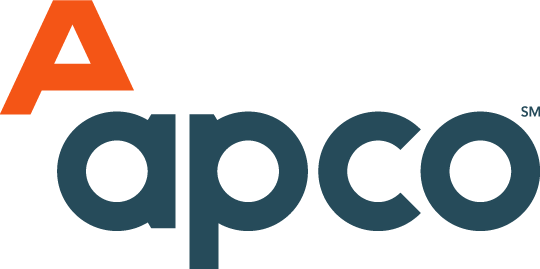
Education for All – Men and Women, Boys and Girls
CARE is working to reach 50 million people with greater gender equality by 2030 through a comprehensive Gender Equality Framework. This means not only empowering women, but addressing issues like gender norms, toxic masculinity, homophobia, and transphobia for women and men. This approach is intended to transform societal structures.
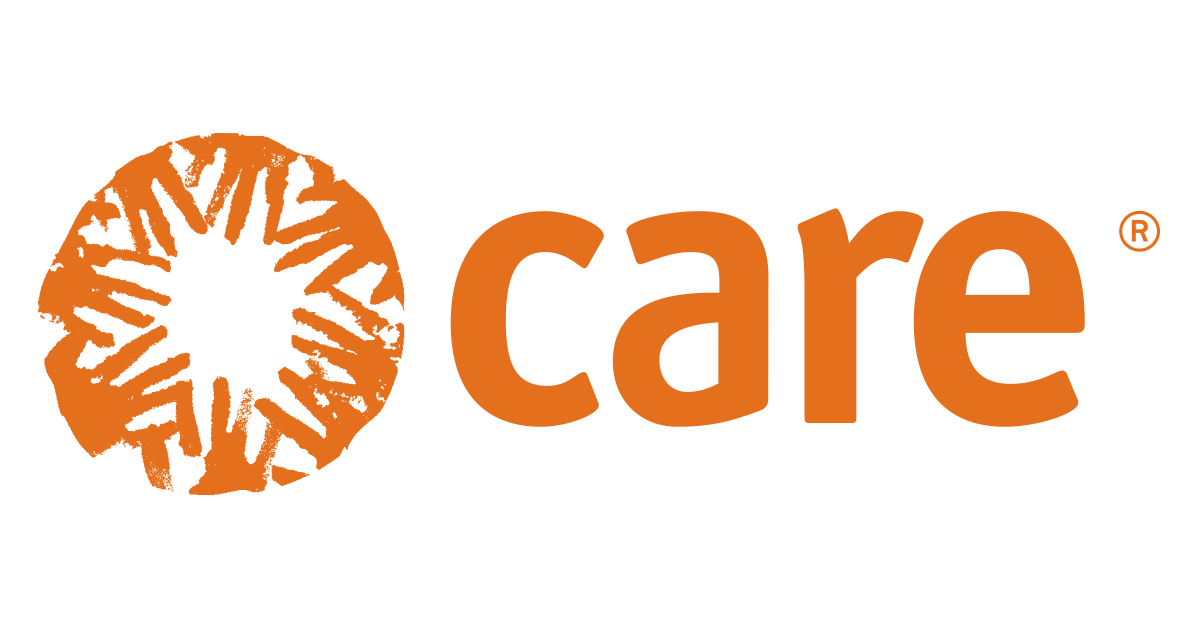
Similarly, a major pillar of Global Communities’ approach is to engage men and boys in ways that challenge unequal gender norms and power dynamics. They conducted a study in Tanzania to test the efficacy of various mothers-only interventions compared with interventions with both mothers and fathers. They found that interventions with both mothers and fathers increased the time fathers spent on domestic chores, mothers’ decision-making power, leisure time, and nutritional diversity, decreasing gender-based violence. However, educating mothers and fathers together had the most lasting impact.

In 2012, the Sehgal Foundation took a novel approach to the education for all concept, funding a community radio station called Alfaz-e-Mewat, or “Voice of the Mewati” people, in the northwest Indian state of Haryana. The station talks about issues that matter to locals like water conservation and agricultural practices, but because most of the people who do the farming are women, the station became much more, offering a platform for empowerment and entertainment. Today still, the station provides a source of information, therapy, and solidarity to women, some of whom consider the station to be an inspiration for their success in life.

Tostan (meaning “breakthrough” in Wolof) empowers communities across West Africa through an evidence-based education model called the Community Empowerment Program (CEP). CEP is a three-year, holistic curriculum that includes human rights, gender equality, health, literacy, and economic empowerment topics in local languages. CEP participants then go on to share their new knowledge in their communities, a process called “organized diffusion.” To ensure sustainability beyond the program, communities create democratically elected community management committees (CMC) that are further trained in project management and social mobilization skills that continue to lead development projects. Further, CMCs are connected to each other through an empowered communities network to amplify resources and skills.
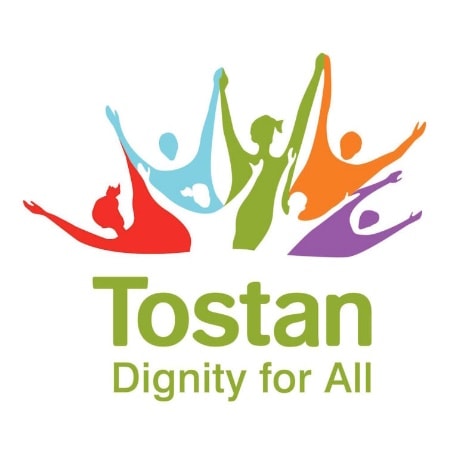
Education for Women and Girls
Everyone benefits from better educated women. They tend to know more about health and nutrition, have fewer children, marry later, and therefore experience better health outcomes for themselves and their children. They are also more likely to participate in the formal labor market and earn higher incomes. A 2018 World Bank study estimated that limiting education for girls costs countries up to $30 trillion in lost lifetime earnings. All these factors combined can help lift households, communities, and countries out of poverty.
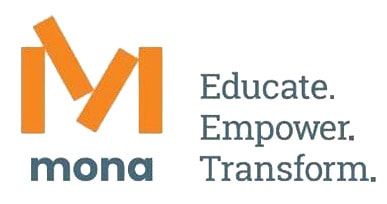
The Mona Foundation’s approach is to address the root causes of poverty and inequality by educating children in India, and therefore empowering women to be the next generation change agents. They do this through grassroots partnerships. Similarly in India, Sukarya educates adolescent girls in the Delhi and Haryana regions on topics such as menstrual hygiene, sexual and reproductive health, nutrition, and life/leadership skills so that they can better navigate misinformation, myths, and social stigmas surrounding gender. The program also provides basic digital skills to improve employability.
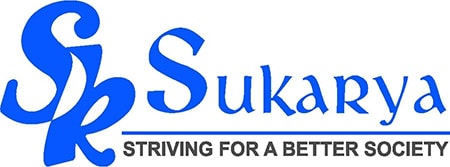
When the Taliban returned to power in Afghanistan in August 2021, they banned education for girls beyond 6th grade. This abruptly ended Sahar Education’s school projects in the region. But they did not abandon their efforts. Instead, they created a stealth program to provide vital skills for Afghan girls, including learning English, technology and coding skills, and educating on gender roles, health, and wellness. The Stealth Sisters and Underground TechSheroes programs are conducted in secret with local schools for girls beyond the Taliban age restrictions.

Crisis Situations
UN Women estimates that the cost of violence against women and girls is $4.7 trillion, or 5.5% of the global economy. That figure is astounding. As Hillary Clinton famously laid out in 1995 at the Fourth World Conference on Women in Beijing, “women’s rights are human rights.” And nearly 30 years later, women in conflict situations are still specifically targeted for sexual violence and rape.
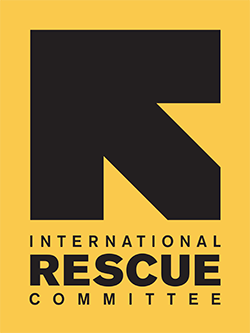
The International Rescue Committee (IRC) works to protect women and girls in some of the world’s most dangerous places. In 2022, IRC trained over 1.1 million women and nearly 580,000 men in gender-based violence awareness-raising activities. One way IRC protects girls is through Safe Healing and Learning Spaces. Research shows that access to caring and predictable learning spaces can have a profound impact on children’s learning and wellbeing. IRC created an opensource toolkit so that anyone can create safe spaces where children in crisis settings can learn with improved social, emotional, reading, and math outcomes. Similarly, Global Communities implements Project ROOTS, an after-school program that addresses the root causes of gender-based violence with the goal of preventing human trafficking, sexual exploitation, and unhealthy relationships.
Homelessness is another major problem for women. Almost half of young women who face homelessness are pregnant or already a parent. Homelessness is traumatic and can have lifelong effects on both the parent and the child, especially those under five years old, which are critical years for brain development. Covenant House cares for young people overcoming homelessness, survivors of human trafficking, and migrant youth without a family member.

Food and Financial Security
According to CARE, there is a $1.7 trillion credit gap for women-owned businesses globally – that’s 70% of women-owned small- and medium-sized business or approximately 1 billion women without access to the capital they need. That’s why CARE started CARE Enterprises, a for-profit subsidiary that empowers women through private capital. The initiative is aligned with the 2X Gender Challenge, a commitment by the G7 donor financial institutions and others to invest nearly $30 billion in women where they need it most. Meanwhile, CARE’s Women’s Entrepreneurship (WE) program aims to empower 3 million women economically and mobilize more than $500 million in private capital by 2030.
Studies show that food insecurity coupled with gender inequality increase the risks of gender-based violence for women and girls. For this reason, Heifer International comes at gender inequality from the lens of food and financial insecurity. Gender is still one of the biggest sources of income inequality in the world with women, not to mention trans/non-binary people, earning a fraction of what men do. Heifer supports women with financial literacy training, access to credit, impact investing, and lending groups to name a few initiatives. A family with healthier resources means that families in places like Rajasthan, India might marry off girls later. It might mean that girls stay in school longer, and, with the right gender training, families might start to begin questioning long-held beliefs about gender roles in the household.

37% of people live in coastal communities around the world, and overfishing remains a huge concern. Future of Fish is an organization that works with communities to look at local ocean challenges and collaborate with stakeholders to transform them into sustainable ecosystems that will bring wealth, nutrition, and prosperity for years to come. But sometimes that means coming at an issue from on land because healthy communities means healthy oceans. In 2021, the organization began working with the La Islilla community in Northern Peru, where fishing was one of the only economic drivers. However, due to long-held local cultural norms, women did not fish and therefore had very little way to contribute to the local economy. A group of women who they call “Las Mamás” (the Mothers) wanted to learn a marketable skill. In a participatory process, Future of Fish and Las Mamás developed a sewing program, teaching the women to sew, coupled with financial literacy and women’s rights topics. In late 2023, the Las Mamás finished the first stage of the program.
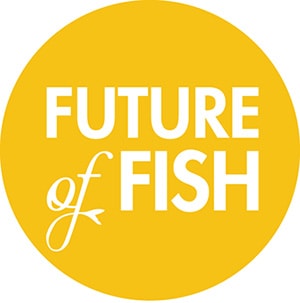
Women represent less than 15% of landowners, yet they are often the ones responsible for feeding their families. Landesa takes the land rights approach to gender equality. Land can be one of the most powerful tools for wealth generation, giving women a clear seat at the table that can wholly change gender power dynamics across the board. It can mean better access to nutritious food and funds for educational costs that further enhance gender equity. Even more, emerging studies are showing that when women securely own land, it could help mitigate climate change as a result of sustainable land management and long-term investments.

Rule of Law
In 1979, the UN General Assembly adopted the Convention on the Elimination of All Forms of Discrimination against Women (CEDAW). It is often described as an international bill of rights for women and is the most widely ratified convention with 189 nations. However, it’s now 45 years later and “femicide” or gender-related killings are breaking records. According to a 2023 UN Women report, 2022 was the highest year on record with over 50,000 women killed in pandemic propotions. The Every Woman Treaty is a coalition of more than 3,000 women’s rights advocates and 840 organizations from 147 countries. Their goal is advancing a new optional protocol to CEDAW that codifies ending violence against women and girls into binding law. Such a treaty would hold nations accountable on women’s safety and security benchmarks.
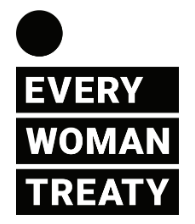
Also fighting gender equality from the legal lens, Women’s Link Worldwide is an organization that uses the power of the law to promote women and girls through social change. It runs the Gender Justice Observatory with over 400 searchable legal decisions to foster creative and innovative legal arguments on women’s human rights issues.

Health
According to CARE, approximately 800 women die from preventable causes in pregnancy and childbirth every day. The organization not only provides health services, it works to address the barriers that prevent access through programs like their Social Analysis and Action and Community Score Card programs. In 2022, skilled health workers in CARE’s programs attended over 500,000 births, and provided numerous programs to support women and married adolescent girls with education, family planning, and access to contraceptive tools that work for them.
Every year, up to 100,000 women worldwide are affected by obstetric fistula, mostly in developing countries. Obstetric fistula is a hole between the vagina and rectum or bladder that develops after prolonged, obstructed labor. It can be avoided by delaying the age of the first pregnancy, preventing female genital mutilation, and increasing access to care, which can be challenging in rural areas. Women who endure an obstetric fistula risk leaking feces or urine and suffer a tremendous amount of physical, emotional, and social stress. The Worldwide Fistula Fund treats its patients holistically as humans, not statistics, to give them the surgery, physical therapy, and support they need recover.

Women in Power and Advocacy
Outright International is an organization that fights for better lesbian, gay, transgender, intersex, and queer (LGBTIQ) lives. Its LBQ Connect program strengthens support for lesbian, bisexual and queer (LBQ) activism because these women (including all cisgender, trans, intersex, and nonbinary people who identify as women) are uniquely marginalized. According to organizations in the field, only 5% of LGBTIQ funding is specifically directed to LBQ issues. The program offers training and mentorship, grants for projects, research on areas of data gaps, and larger advocacy projects.
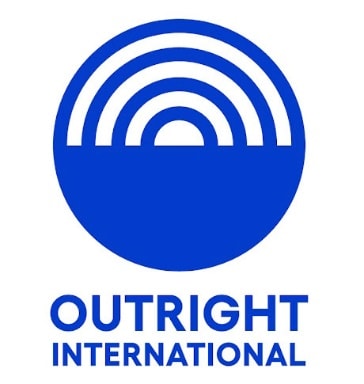
Oxfam International is building a world where “the future is equal.” They do this in myriad ways, but their Sisters on the Planet program is a quintessential example. Their Sisters on the Planet Ambassadors are a group of American leaders in business, politics, and the arts that unite to fight inequality and empower women and girls around the world.
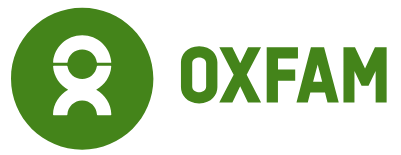
Global WA: Together, Stronger
The organizations mentioned here are just a few of the great GlobalWA organizations whose work touches women and girls, and the projects highlighted are just a taste of the incredible work they are doing to fight gender inequality from the state of Washington to around the world.
In addition to the above organizations, the following GlobalWA members work on gender equality through their programs in communities where they work.
As healthcare access disparities persist for marginalized communities, the Tegan and Sara Foundation (TSF) has emerged as a beacon of change. APCO Impact is proud to have worked with TSF to create the LGBTQ+ Healthcare Directory, a resource aimed at providing inclusive healthcare access to LGBTQ+ individuals.
In collaboration with GLMA, the largest association of LGBTQ+ doctors in the U.S., this directory was created to connect individuals with affirming healthcare providers.
Since its launch in 2022, the directory has connected more than 2,700 providers and facilitated more than 43,000 searches across all 50 states and 10 out of 13 Canadian provinces. With over 60,000 engaged users, the directory has become a trusted resource for LGBTQ+ individuals seeking inclusive healthcare services.
Recent updates, including state-specific search functionality and options for remote healthcare services, have further enhanced the directory’s accessibility. These improvements ensure that LGBTQ+ individuals, regardless of geographical location or social background, have access to quality healthcare.
APCO’s team has worked with TSF since the Foundation’s inception, and the directory is just one of the many programs we develop and execute for TSF. APCO is committed to driving positive change through collaborative, innovative efforts like this. By leveraging our expertise and resources, we support initiatives that advance equity for gender-diverse communities in healthcare and beyond.
Global Communities recognizes that gender equality and social inclusion (GESI) are vital to realizing human rights, achieving sustainable development goals and delivering effective humanitarian assistance. We also know that achieving gender equality requires intentional efforts to overcome multiple barriers to women’s empowerment. We employ both crosscutting and gender-focused interventions to foster GESI. First, we strive to integrate GESI across all programs. Second, we implement women- and girl-centered programs to promote their leadership, economic empowerment, and civic engagement; advance their health and well-being; and address gender-based violence, including child marriage. One example is Women Empowered (WE) – our signature savings group program designed to promote financial inclusion and the social and economic empowerment of women. While supporting women in building sustainable livelihoods, WE promotes women’s participation, leadership, and collective action, positioning them as confident agents of change in their homes and communities. Finally, we engage men and boys in gender-transformative interventions that challenge unequal gender norms and power dynamics. To learn more, visit our blog, explore our visual story, Women Saving for Resilience: Transforming Lives Through Innovative Savings Group Solutions, and join our upcoming NGO CSW68 parallel virtual event, Fostering Women’s Entrepreneurship at Every Stage: A Cross-regional Exchange on March 21, 2024 at 9:30-11 am EST.
Through our locally led approach, Heifer International identified a demand from smallholder women farmers for training, tools and financing to build agribusinesses in service of feeding their families and securing sustainable incomes.
Support for farmer-run cooperatives is central to Heifer’s work with women globally. For many rural women, cooperatives serve as lifelines, offering friendship, a financial safety net and opportunities to learn the agricultural skills necessary to thrive in resource-poor environments.
In Senegal, Heifer partnered with the Saloum Corn Producers Association to support farmers to improve production, adapt to climate change and bolster food security. Through the co-op, women members have strengthened their collective businesses: growing vegetables and staple crops like corn, peanuts and sorghum and, together, processing them into higher-value products. With more than 2,500 members, the group recently built a storage facility for corn and obtained a loan from Heifer’s impact investment arm Heifer Impact Capital to grow its businesses.
Support in the form of facilitated training workshops — including exercises to help change views on gender equality — with the Chhatre Deurali Social Entrepreneur Women’s Cooperative in Nepal encouraged the growth of practical skills. Recent research found that nearly 87% of women participants in Heifer Nepal projects said they made decisions about their incomes, compared to 52% of women in Nepal’s national Demographic and Health Survey.
In Alta Verapaz, Guatemala, the indigenous women of ADIRA Cooperative are learning enterprise management and planning skills to develop viable businesses in the cacao- and chocolate-making sector as part of Heifer’s Green Business Belt program. This partnership with the cooperative has broadened ADIRA’s impact by providing training to empower women to become project promoters in their communities.
Landesa champions and works to strengthen land rights for millions experiencing poverty worldwide, primarily in rural areas, to provide opportunity and promote social justice.
Land is the foundation for shelter, livelihood, and climate resilience. When a woman holds strong rights to her land, her dignity, household decision-making, and economic freedom increase—benefiting not just her, but also her family and community. Women’s equal rights to land are fundamental to gender equality. Despite recent progress, there remain significant gaps between women’s land rights on paper and the realities of women on the ground.
Landesa serves as Secretariat for Stand for Her Land (S4HL), the global campaign driving collective action on women’s land rights. With national coalitions in nine countries—and counting—and almost 100 member organizations, S4HL elevates grassroots women’s essential leadership and voices to build the movement for women’s rights to land. Activities include law and policy advocacy, capacity building efforts, and shifting social norms in the direction of gender equity: together driving progress toward making strong land rights a reality for millions of women around the world.
Celebrating 25 years of service, Mona Foundation partners with grassroots organizations that educate children, empower women and girls, and emphasize ethics and service to develop next generation change agents who uplift themselves, their families, and their communities. In 2023, working with 24 grassroots partners in 14 countries, we supported the education and empowerment of over 1.35MM students. The consistent and proven result has been that positive social change becomes increasingly visible as the value of gender equality and the education of girls is supported. Community transformation accelerates as social norms that inhibit girls from developing their capabilities evolve and as men champion equality and the right to education for all as inalienable human rights. Our long-term partnerships, built on trust and transparency, enable our grassroot partners to build their capacity to address community needs with increasingly complex solutions, to collaborate with their governments and civic society, and to ultimately scale their reach and impact. Our experience shows that working with grassroots organizations to build local capacity over time is the surest way to overcome challenges and sustain the path towards a more equitable future.
Throughout its 33-year history, Outright International has proudly identified as a feminist organization and advocated for the rights of lesbian, bisexual, transgender, intersex, and queer (LBTIQ) women through a variety of programs. We work closely with women’s rights activists at the United Nations and around the world because we believe our movements for gender equality and justice are inextricably linked. Outright was founded by queer women, co-hosted the first “lesbian tent” at the 1995 World Conference on Women in Beijing, and works closely with the Women’s Rights Caucus and LBTI Caucus at the UN Commission on the Status of Women and the NGO Working Group on Women, Peace and Security. We partner with grassroots LBQ activists in dozens of countries around the world to address and end gender-based violence and launched the LBQ Connect program in 2022 to support and amplify the work of LBQ activists in the Global South and East.
Partners Asia understands that true freedom requires the empowerment of all individuals, regardless of gender identity or sexual orientation. Despite the persistent challenges of gender-based violence and discrimination in Southeast Asia, Partners Asia remains unwavering in our commitment to building more equitable communities.
Through comprehensive mentorship programs, Partners Asia nurtures emerging women leaders, enabling them to advocate for change through community engagement, policy advocacy, and movement building. One remarkable example of this is seen in a partner organization on the Thailand-Laos-Myanmar border, which works tirelessly to ensure the health and well-being of girls and youth from diverse ethnic backgrounds, especially regarding reproductive health—a critical issue often overlooked. That’s just one example. There are dozens.
Partners Asia’s approach centers on supporting local organizations that work with marginalized groups, including stateless, indigenous, and ethnic minority women, and LGBTQI youth. This strategy not only addresses gender inequality but also intersects with broader issues like labor rights, healthcare access, education, and citizenship challenges in Southeast Asia.
Partners Asia’s steadfast support for women and LGBTQI-led community initiatives underpins an unwavering commitment to a more just and inclusive world where partners drive meaningful and inspiring progress toward equality and justice.
At Perennial, we are deeply committed to advancing Gender Equality (SDG 5) and Reducing Inequalities (SDG 10) through our innovative leadership development program, WOMEN in CLIMATE currently in the fundraising stage. This initiative is dedicated to empowering women in the global south who are at the forefront of combating climate change. Recognizing that these marginalized populations bear the brunt of environmental impacts, our program prioritizes wellbeing and sustainability, offering a support system that is often lacking.
Our approach is rooted in the principles of Leadership 3.0, a model that fosters reflection, awareness, and social construction among leaders. This program is inspired by Dr. Britt Yamamoto’s forthcoming book, “The Soil of Leadership,” which emphasizes the transformational potential of tending to the inner world of leadership. Leadership 3.0 encourages a shift towards sustainability, renewal, and the overall wellbeing of leaders, acknowledging the profound impact of a leader’s inner landscape on their external influence.
By integrating these principles, Perennial aims to nurture global women leaders who are not only equipped to address the pressing challenges of climate change but also to inspire transformational change within their communities and beyond.
Schools for Salone (SfS)’s mission is to advance education in Sierra Leone through local partnerships. One of our key program pillars is to promote education equity by breaking down barriers for girls to complete their education.
In Sierra Leone, menstruation is a significant barrier to education. In our schools, 20% of girls miss school when they are menstruating and 93% of girls lacked knowledge of menstruation before their first period. Shame, stigma, and misinformation discourage girls from attending school while menstruating and prevent schools from teaching healthy attitudes around menstruation. SfS is working closely with Uman Tok Sierra Leone to help keep girls in schools.
Uman Tok, a Sierra Leonean grassroots organization, dismantles barriers to girls’ education by providing sustainable menstrual hygiene kits and vital sexual reproductive education.
Since the SfS began its partnership with Uman Tok in 2016, over 46,500 menstrual hygiene kits have been produced and distributed and around 23,600 boys and girls have received sexual reproductive health education. Most importantly, SfS schools have had zero cases of teenage pregnancy and period-related absences has dropped to nearly zero.
At Starbucks, we have a responsibility to care for people across the entire supply chain who make coffee possible – from bean to cup, farmer to customer. Further to our Community Promise to contribute positively, The Starbucks Foundation has a goal to positively impact 1 million women and girls in coffee-, tea- and cocoa-growing communities by 2030. To do this, we partner with nonprofit organizations focused on promoting economic opportunity and empowerment, advancing women’s leadership and increasing access to clean water, sanitation and hygiene (WASH).
“Through our Origin Grants program,” says Kelly Goodejohn, Starbucks chief social impact officer, “we are proud to work with nonprofits across the world to uplift women in coffee-, tea-, and cocoa-growing communities with a goal to create opportunities and ultimately improve lives through the empowerment of women. While we have a responsibility to care for people across the entire coffee supply chain, we know that when we invest in a woman, there are ripple effects and positive outcomes for her family and the larger community.” Read more about our latest grants here.
Women’s Link Worldwide is an intersectional feminist, anti-racist, anti-colonial, and Global South-led organization, working with and for the feminist movement in Latin America and the Caribbean, East Africa, and Europe. We proudly work with more than 60 national partners across those regions and 40 regional and global coalitions and networks.
For over two decades, Women’s Link has been using various legal tools to advocate for women, girls, and gender-diverse people, particularly those facing oppression within societal systems, striving to bring them closer to justice.
To work towards achieving gender equality, we strengthen and transform the feminist strategic litigation ecosystem to break down barriers, challenge oppressive systems, and alter power imbalances by breaking the walls of the legal sphere and bringing in those left out.
Central to our method is an intersectional approach applied through legal strategies that secure rights for women, girls, and gender-diverse people. Our priorities are gender and reproductive justice, especially access to safe and dignified abortion, and prevention of gender-based violence. Climate and racial justice are intricately linked to our work on sexual and reproductive rights and gender-based violence.
Pangea Grant Partners – Gender Equality
East Africa
Children’s Empowerment Program (CEP) Uganda
CEP’s goal is to create sustainability of women’s empowerment savings model by establishing a women’s SACCO (credit union) and enhance women’s vocational training by offering a higher level of certification.
Ewang”an Kenya
The goal of Ewang”an is to train 60 women and 20 youth in 3 villages to improve food security and develop resilience through gender and entrepreneurship training.
Playmakers Theatre
Playmaker Theater’s “Wezesha Dada” (Empower A Woman) project will equip young and middle-aged women with life skills to empower themselves to realize their full potential socially, economically, and politically.
Renewed funds will be used to expand the Women on Wheels program to equip 100 refugee women to gain financial independence: extensive tailing and business training combined with mentoring, mental health support and internships with established tailors. This is a comprehensive program ameliorating the trauma of refugee reality with training and gainful employment.
Ufanisi Women’s Group Kenya
Ufanisi Women’s Group are currently promoting women-led businesses by expanding their sweet potato product enrichment business and open a market stall in Bungoma.
Women In Sustainable Enterprise
WISE was founded to address economic uncertainty and sexual exploitation of women fishmongers in wetland villages around Lake Victoria by promoting environmentally sustainable enterprises that empower women and strengthen the community.
Latin America
AC Esperanza promotes a culture of peace and gender equity through innovative programs for secondary school youth in Chimaltenango and their community.
MUSOR focuses on education, economic empowerment and health promotion for women and children living in poverty. It was founded by a group Mexican women professionals experienced in implementing projects related to basic reproductive and sexual health in marginalized communities.
One of the goals of Taa’Pit is to educate Tzutujil Maya women & children in nutrition, health, culture, sustainable farming, women’s income generation, and environmental stewardship.
UNOSJO
UNOSJO does intersectional work in defense of land rights against mining interests, training isolated rural communities in improving economic independence by bringing agricultural products to market, defending Zapotec language & culture, and shifting attitudes of men and women to reduce gender violence, and encourage women to have a larger role in decision-making at all levels.
Southeast Asia
Cambodia Indigenous Women Association
Cambodian Indigenous Women Association (CIWA) was founded in 2019 at the initiative of 37 indigenous women and 7 men, as an organization committed to gender equity and the protection of fundamental rights of indigenous women. Their goal is building the capacity of indigenous women to lead and take ownership of development processes in Cambodian indigenous communities and society at large.
Muditar
Muditar works to develop and strengthen the Village Development Model. They are also working on the empowerment of women through strengthening the capacity of self-help groups, women led saving fund, reproductive health programs, and income generating projects.